Busted: “We were just really successful and people couldn’t really wrap their heads around that”
The UK pop-punk trio tackle the preconceptions surrounding their success, songwriting and guitar playing
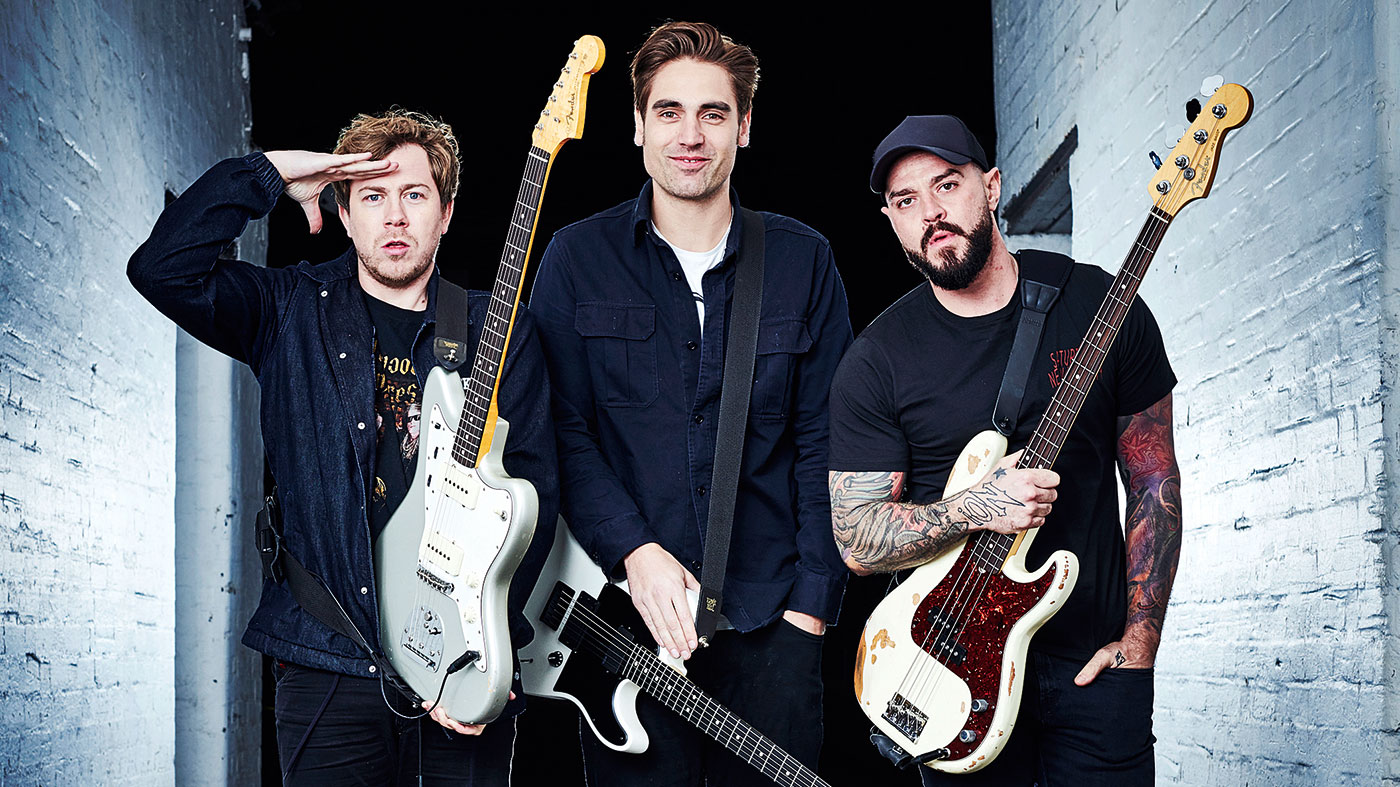
Guitar needs gateway bands to survive - those who balance the pop hooks with the powerchords in a way that draws young ears in; enough to bug their parents for that first guitar. And some of them will stick with it and make up tomorrow’s bands.
We spoke to Busted 15 years ago when they were one of those crucial gateways to guitar for teenagers; just like their own heroes Oasis, Green Day and Blink 182 before them. But fast-forward in time, after a 2013 mash-up with McFly in McBusted before a full 2015 reunion, and their old fans are pushing 30; the charts that Charlie Simpson, James Bourne and Matt Willis find themselves back in are devoid of our beloved instrument. They’ve got some insightful thoughts on why that could be, as well as their own attempt at a remedy with new album Half Way There.
There’s a perception that it wasn’t ‘real’. That something could be so big that could come from three kids
It’s not just that they’re appealing to nostalgia by name-checking Oasis, Smashing Pumpkins, Nirvana and even Saved By The Bell characters in the album’s lead single Nineties; plenty of songs on this guitar-heavy Gil Norton-produced (Foo Fighters, Pixies, Feeder) record would be envied by any number of pop-punk bands.
Indeed, a couple could easily have been Blink-182 tracks. It’s a bold statement - 2015’s comeback record, synth-heavy Night Driver impressed and confused fans in equal measure. “We’ve got the guitars back!” Simpson tells us. So are Busted the unlikely champions of guitar in the mainstream again?
We sit down with the trio during a break in their rehearsals at John Henry’s studios in Islington, London ahead of this month’s UK arena tour to talk six-string politics and the misconceptions about them. We also take a peek at what they’re playing on stage these days…
Half Way There is a return to the more pop-punk side of old for you but it’s also a bit heavier in the guitar department than you’ve been. Was that an important move?
Charlie: “I always wanted to make a record like this and we never could have back then. I don’t think the record company would have allowed us to go this heavy with the mixes and stuff.
Want all the hottest music and gear news, reviews, deals, features and more, direct to your inbox? Sign up here.
"For me it was a really interesting process. If it had been like this I probably would have never left in the first place. If we’d had the freedom to go and work with someone like Gil Norton and have big guitars… but I feel like back then we were under a lot more pressure from the record company in 2002.”
Do you feel that for some people you’re misunderstood? People have preconceptions about Busted…
Matt: “It’s very weird. First of all there’s a perception that it wasn’t ‘real’. And I think that was very strong and that people couldn’t believe what was happening. That something could be so big that could come from three kids.
"I can understand why because if I saw something happen I’d be very sceptical. But it was real and it was happening.
"It was just really fucking successful and people couldn’t really wrap their heads around that. It was a weird thing and it almost became a bit of a dirty word at times, Busted I think. Which was awful to be in the band and have that.”
Six-string shift
Recently, Muse’s Matt Bellamy alluded to a shift with guitar in this decade from being the driving and constant presence in a sound, at least in his world. Where do you stand with that?
Charlie: “I don’t agree with that. That is very much him succumbing to the fact… well maybe because Muse are going in that direction. I think that’s absolutely wrong. The more kids that hear guitars the better. Because they’re getting swallowed into this hole of making computer music and I’m sure some of it’s very good but there’s something about guitars and acoustic drums.
"It will come back, I have no doubt about that but it’s like the battle of the guitar when the solo wasn’t ‘cool’ any more. There was always room for solos, it’s just got to be done the right way.
The guitar is too much part of popular culture to be sidelined in that way. I don’t believe that will ever happen
“The guitar is too much part of popular culture to be sidelined in that way. I don’t believe that will ever happen. I think there’s trends, and at the moment we’re in a very electronic trend. It’s going to take one band, in a Nirvana-style to really… you need a band to galvanise the younger kids.
"Because they’re the ones listening to all the electronic stuff. You need a band that appeals to them. Our era - all our friends still listen to guitar music and go and watch bands. It’s the younger ones. I suppose with Bring Me The Horizon, the audience is pretty young.
“Even us, back in the day I remember someone telling us that guitar sales, the year we came out, went up like 30 per cent or something. And they attributed that to Busted - which is astonishing. Kids were watching pop bands singing and then getting up off stools [sounds like he means Westlife to us - Ed] and then suddenly this pop band comes along with guitars. And that to me is an incredible thing, to feel like we had even a little part to play in putting a guitar in kids’ hands.”
Matt: “I meet so many young guys in bands now, which is weird to not be the young guy anymore because we were always these weird three kids hanging around, but now I meet all these other kids. I meet them and they’ll say, ‘The first song I learned to play was What I Go To School For,’ and, ‘the first time I picked up a guitar was playing Busted tab’.
"That was amazing to me because I did that with Oasis chord books. It was so cool to hear people did that with our band.”
90s and nostalgia
Speaking of Oasis, some of the songs like Nineties and Radio on this album are quite nostalgic about music from when you were growing up. Are you trying to bring some of that back?
James: “I used a 335 for this solo [on the song Radio] that was very Oasis - it’s that sound. And in Nineties there’s the line, ‘In my room I played guitar / only played Oasis and Nirvana,’ because that was my 90s.
In the early 90s I sat in my bedroom, we didn’t have Instagram and all the shit kids have to distract themselves. You’d listen to your favourite music, you’d play it in your room on your guitar. You’d do your homework and you’d listen to Green Day and Oasis and Nirvana. That was my childhood.
This album is definitely a throwback to what we loved growing up and what inspired us when we were at the beginning
“And because we had that Nineties song and we had that lyric I thought it’d be really funny to rip an Oasis solo and put it in the song. Because this album is definitely a throwback to what we loved growing up and what inspired us when we were at the beginning.
"You looked at the music business in a whole new way to the way you look at it now. We wanted to capture a little bit of that excitement on the album and I think we did that.”
How do you feel about guitar’s place in the mainstream now?
James: “I honestly have a lot to say with theories and opinions as to why music’s got to where it’s got to. And I think a massive part of it is that everyone now has a recording studio in their bedroom. When we got signed not everyone had that. You used to need a record company to get you in a real studio.
"Now anyone can do it and just distribute on Tunecore. I think as well, when you have a synth or a MIDI keyboard, you play that and you hit the key on the keyboard and the noise you want comes out - it’s a very easy kind of thing. Playing the guitar, you’ve got to do more than that; you’ve got to tune the guitar.
"I know it sounds stupid but you take those kind of things for granted when you’ve been playing guitar your whole life. For a kid who wants to make music in his bedroom that is a drag for them.”
It’s a possible barrier…
James: “It’s a barrier that they’re not necessarily going to want to deal with. And why should they if they’ve got a program or a plugin on the computer that gets them a cool synth sound and they can make that riff on a synth or whatever. So a lot of music now is lacking guitars and it’s not because guitars aren’t good, or they don’t sound good or they don’t make you feel anything, it’s because these people don’t know how to do it.
“Also, when Busted were inspired to start making music all of the main music in the charts through the late 90s was guitar-driven music. It was cool and it was well made music. The Green Day album American Idiot was like the last great guitar album [in the charts]; after that you had people trying to make guitar music but it was just badly done.
"And then guitar music started to sound really shit and then it just died out. It was a massive shame because I think when guitars are done well, they slay. It’s clear that when you listen to EDM stuff with no guitars, it sounds dead to me now. I can’t do it.
“That’s why we wanted to make this album. We just wanted to make a well-made guitar-sounding album for now. And work with Gil because we think now our album is going to sound fresh compared to all the other shit coming out.”
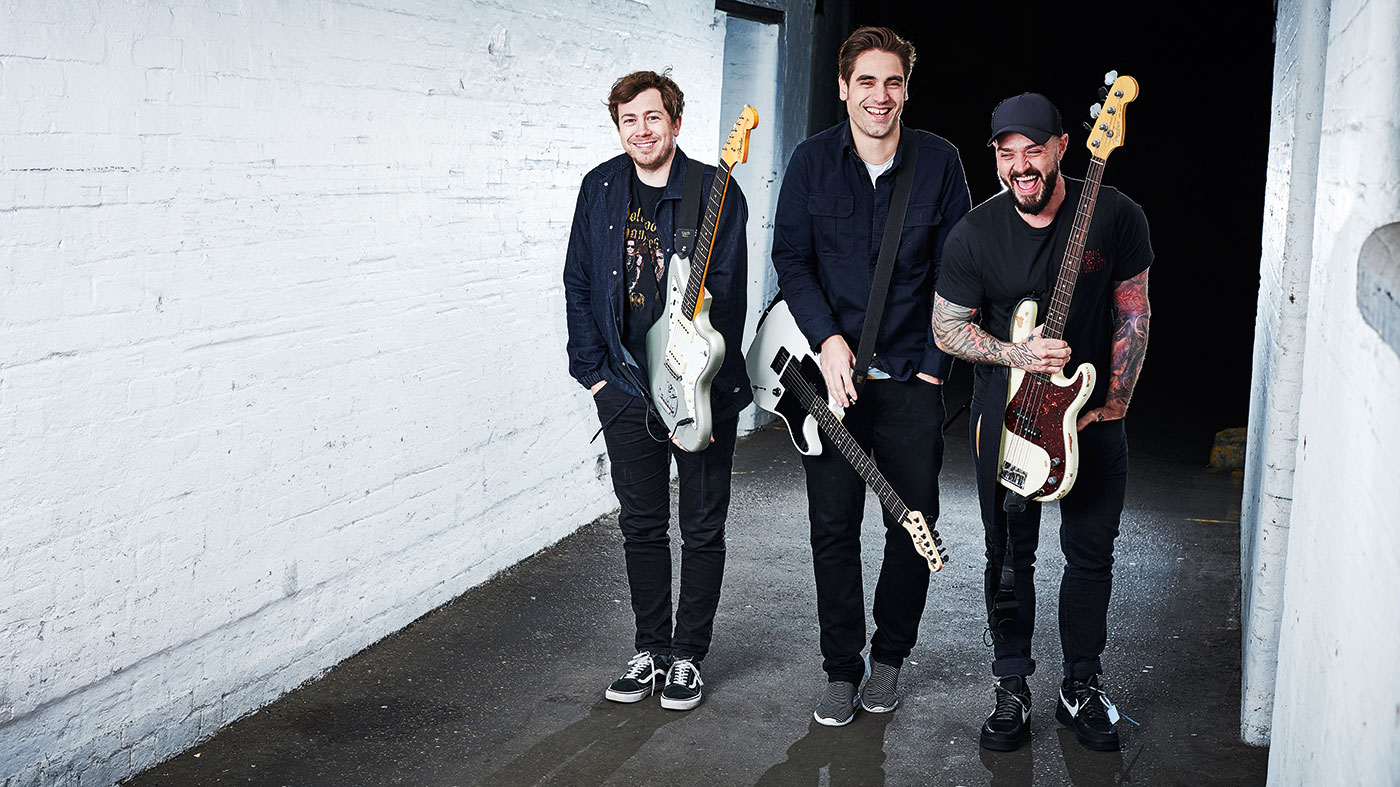
Punk vs pop
Matt, is it a fair estimation to say you’re the punk element of Busted?
Matt: “Yeah I’d say so. Charlie was all about metal when we met him but he loved some of the American pop-punk stuff as well. James has such an eclectic weird taste but it’s all really cool.”
And it sounds like a mix of that
No one was knocking the door down saying you must be a band again. The reunion happened completely organically
Matt: “I really think it is. If we write songs without the other two it becomes about that person rather than about Busted. We’ve all done stuff separately and, without saying anything, none of it’s worked in the same way.
"Something happens when the three of us write together and it becomes Busted. It’s just something that happens and that’s what I think this record is.”
How was it playing together again as guitarists after 10 years apart?
Charlie: “Cool. Obviously musically it was very different [to Fightstar]. When the band got back together we were listening to a lot of the old 80s stuff . We’re different players me and James. He will rarely go into drop D, whereas I like using tunings like DADGAD. James likes standard tunings and it fits the style of his playing.
"We complement each other; now what we do is I’ll often be in drop D and he’ll be in standard, or he’ll have a capo and play open chords or I’ll play barre chords. And those layers complement each other well.
"That really is the sound of Busted - you have this heavier tone and this lighter tone and the harmonics work well between the open Gs - even with a capo - and the barre chords or drop D tones. That married well together.”
James: “It’s weird because the media really twist things around and they really… sometimes they’ll push an angle that’s not real to sell a story. I’m not saying they straight-up lie but they’ll take an angle and they’ll go with it as a story will get more traction - like, ‘He’s the real musician who is off to do a real band,’ [Simpson focused on his other band Fightstar after Busted’s 2005 split], and it’s weird because when we’re in the room just playing music you’re thinking about those stories and it was so weird that tale was sold to people. Because I’m not a big screamo fan but I love music, it’s my life just like it’s Charlie’s life.
“I think Charlie, he realised, ‘Well I haven’t seen these guys for a while but there’s a lot more in common than I remembered.’ And with Busted there’s this shaded area that we all unite on - bands we love and grew up on and the music we want to play. It’s scary how much we still have in common.
“It’s scary how much we can do and achieve now after 10 years of being apart. No one was knocking the door down saying you must be a band again. The reunion happened completely organically; it happened in a very out of nowhere way. After about eight or nine years we had this TV show trying to get us on, this big reunion show, but we turned it down because it was just wrong for us.
"It wasn’t the real thing, but us as a band in a room making music together, making records - that’s being a band.”
Busted headline Hampton Court Palace Festival on 8 June.
Gear 3,000
The old and new for the Busted 2019 rigs
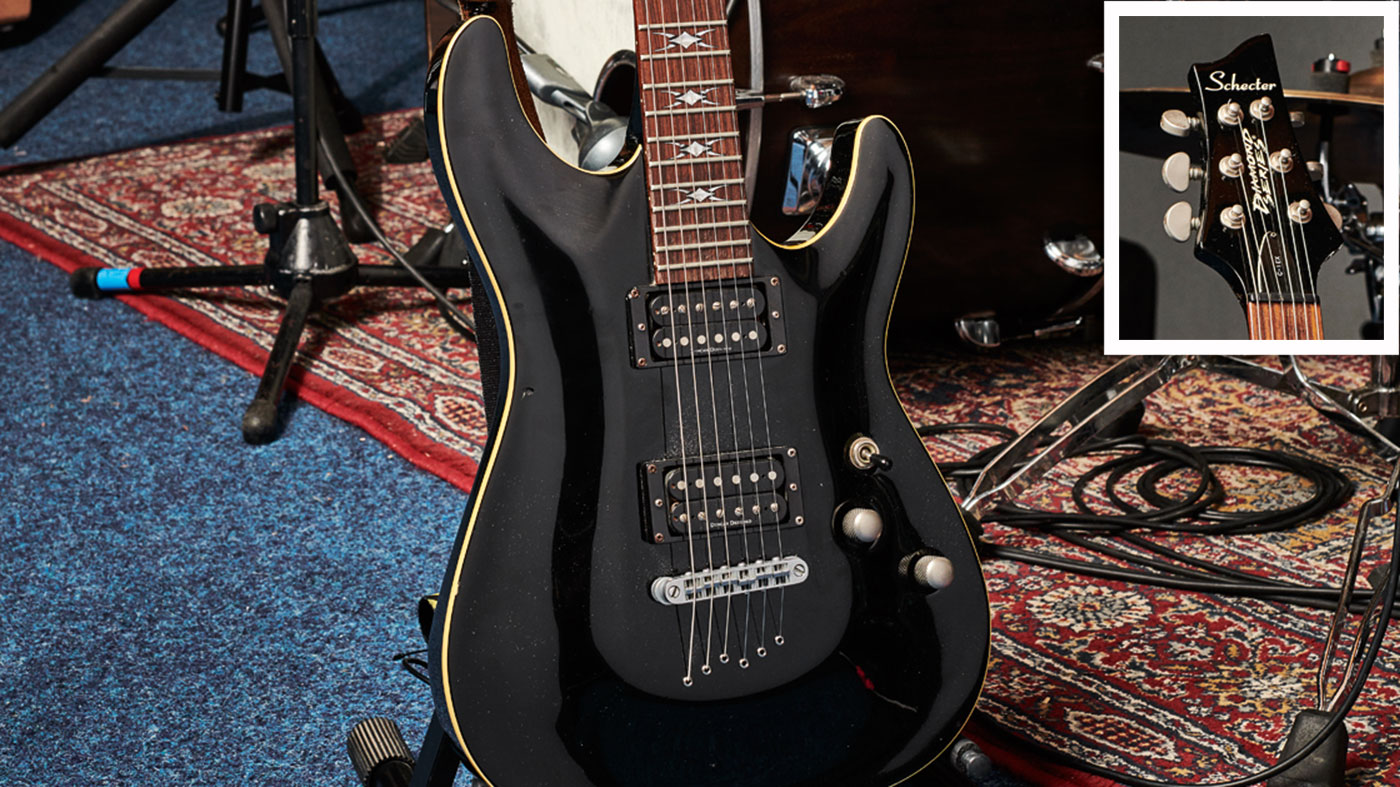
2004 Schecter Diamond Series Omen 6
James: “A lot of my friends who play guitar say, ‘You’ve got to lose that guitar,’ but songs sound great on it. I always use it on Year 3000 because it just has this thing, a very Busted sound. I’ve played the same song on 15 guitars, good ones, that got delivered to the rehearsal studio. The song just wasn’t the same - I can’t get it from those guitars.”
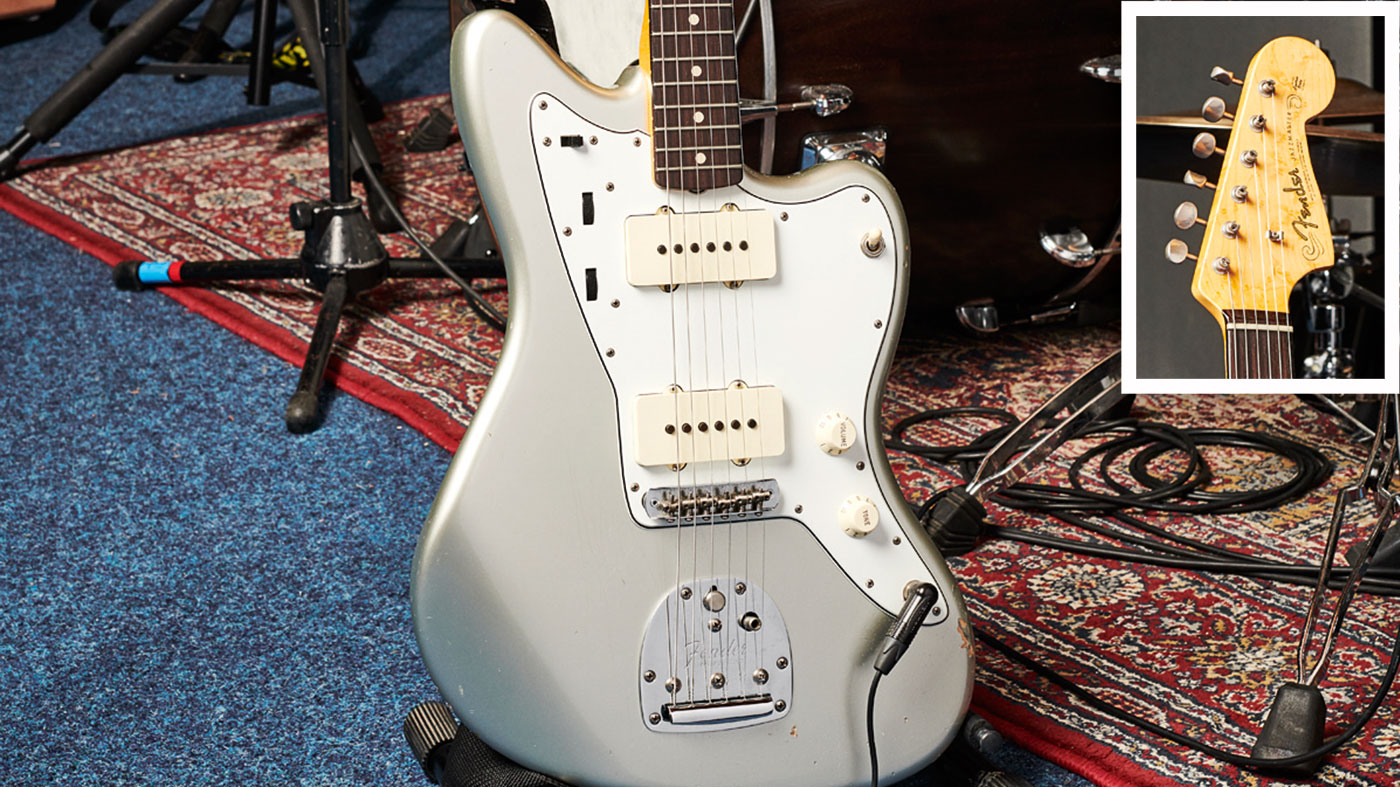
Fender Jazzmaster
James: “The Jazzmaster is my favourite guitar apart from my Schecter. But I love all my guitars. I like Fender because they’re good all-round guitars. ”
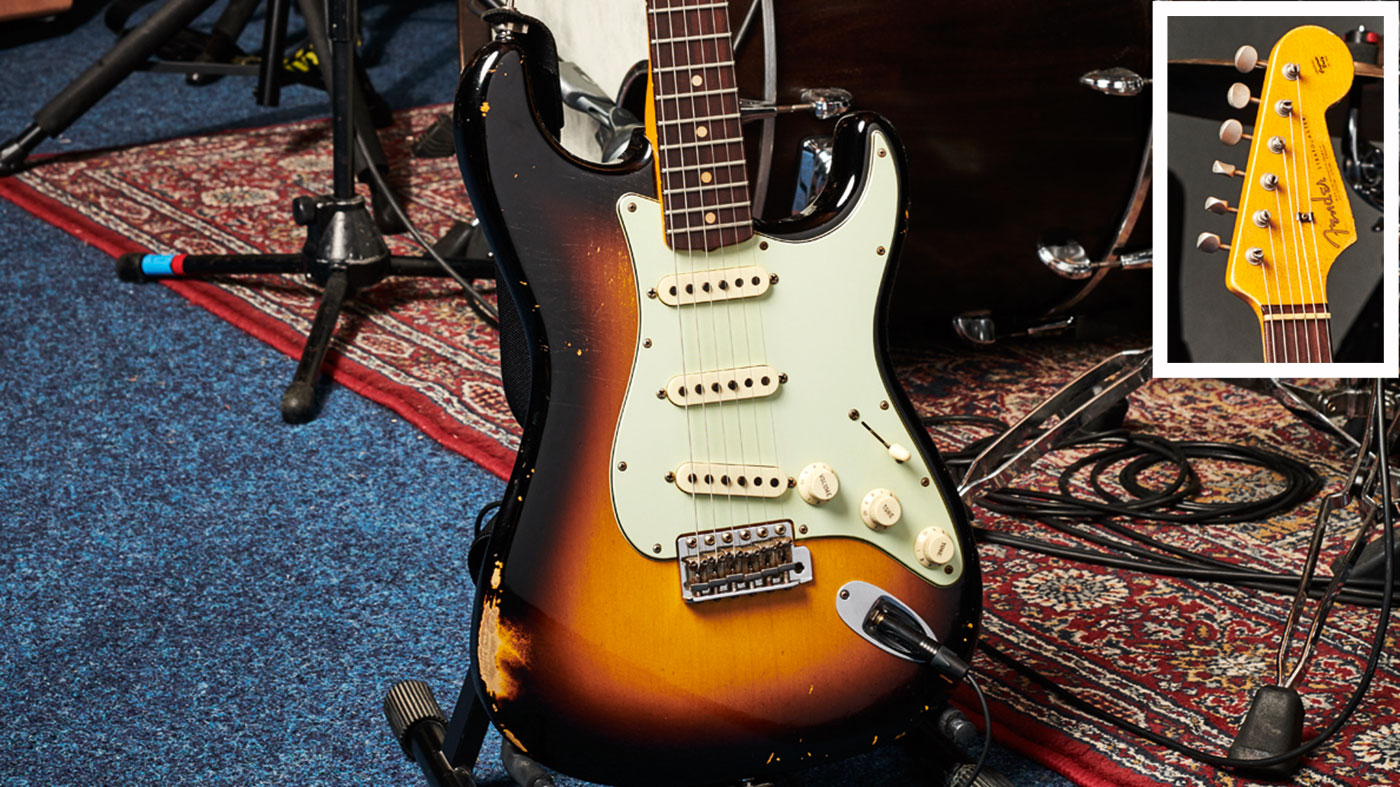
Fender Custom Shop Stratocaster
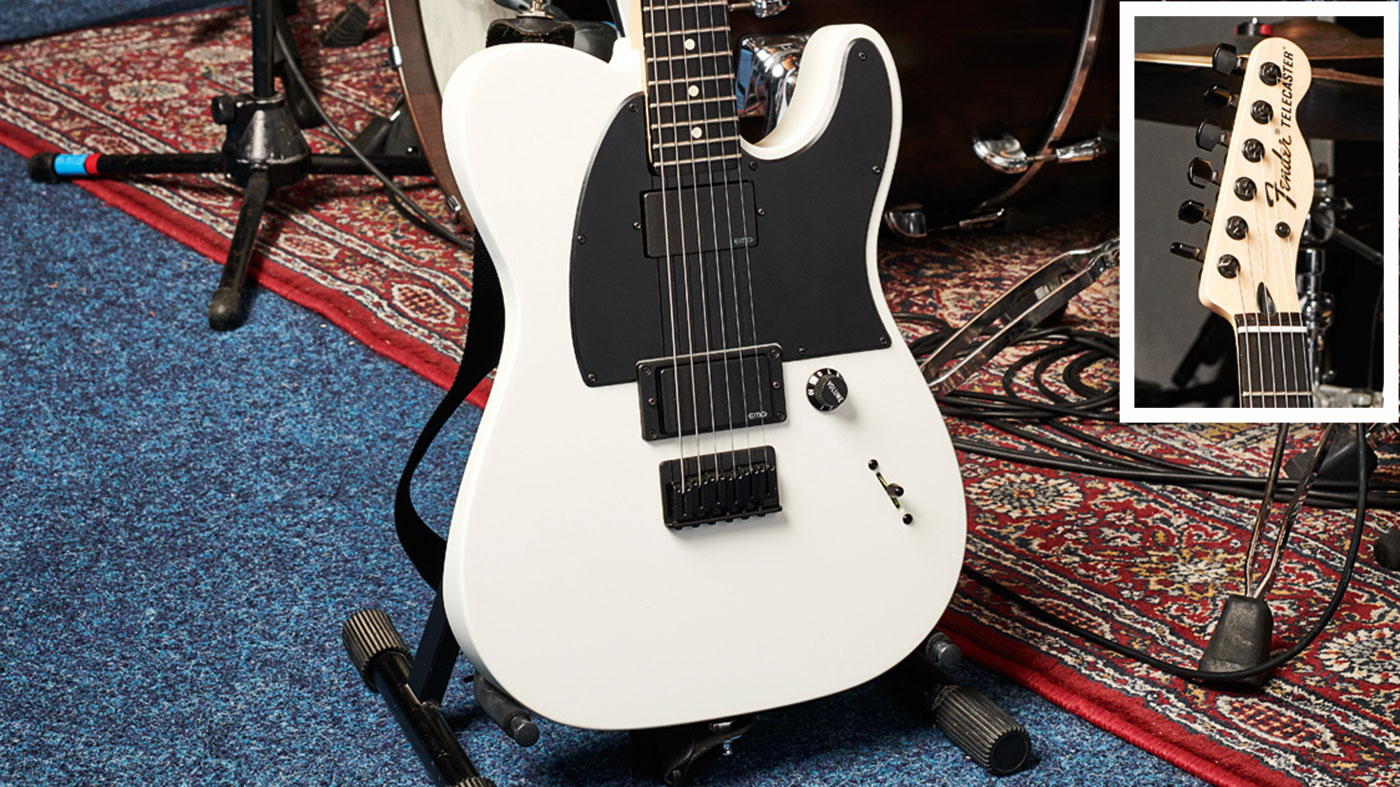
Fender Jim Root Telecaster
Charlie: “I love Tele guitars but they just don’t have the output I want when I’m in heavy distortion, so the Jim Root just made so much more sense to me. I saw the guitar and was just like, ‘Oh my god,’ - it’s one single tone, two EMG humbuckers and it looked so perfect. So I started using that, and also his Jazzmaster...”
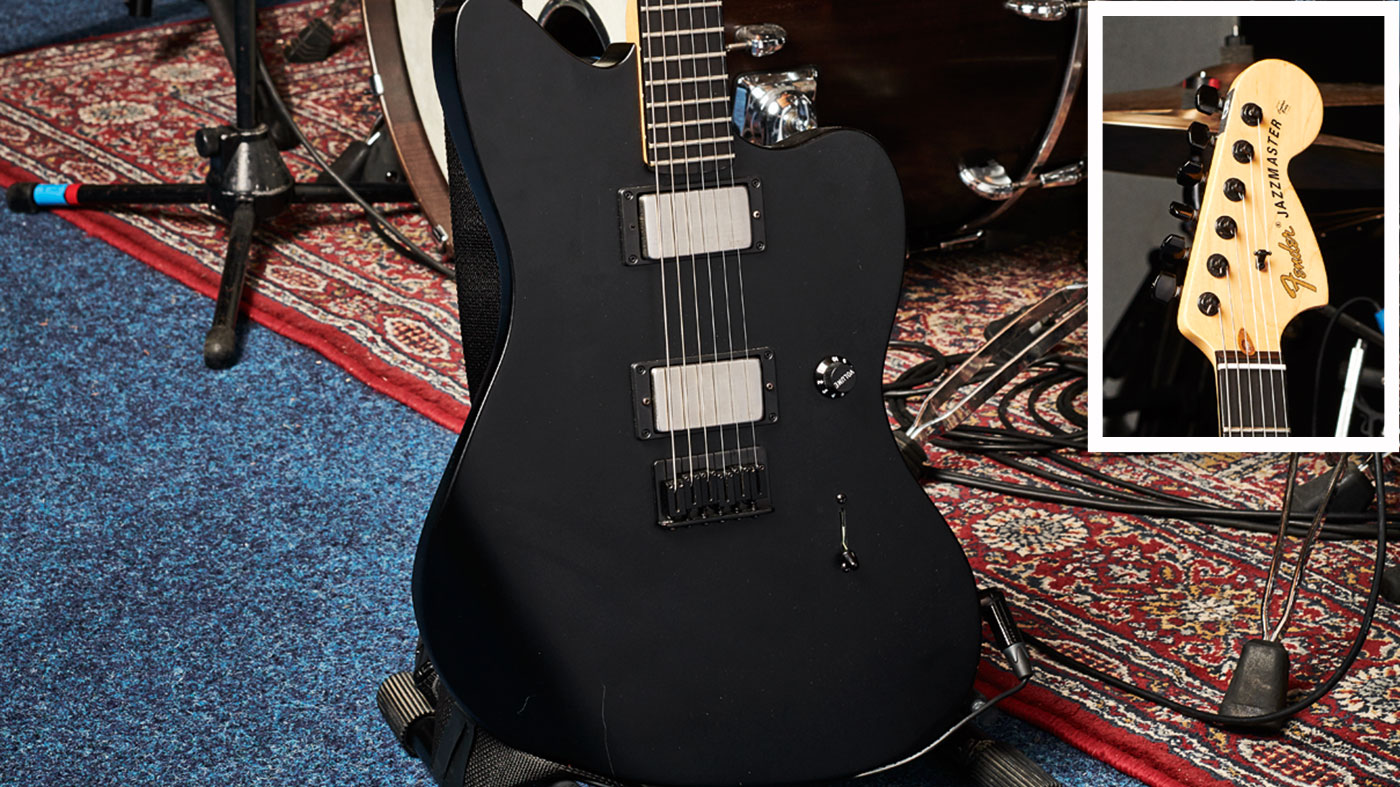
Fender Jim Root Jazzmaster
Charlie: “I’ve got two Teles because we’ve got drop D and standard tuning, then I have the Jazzmaster which is slightly less bitey, so I use that for more of the crispy distortions that don’t go very heavy - songs like Sleeping With The Light On. A more delicate tone.”
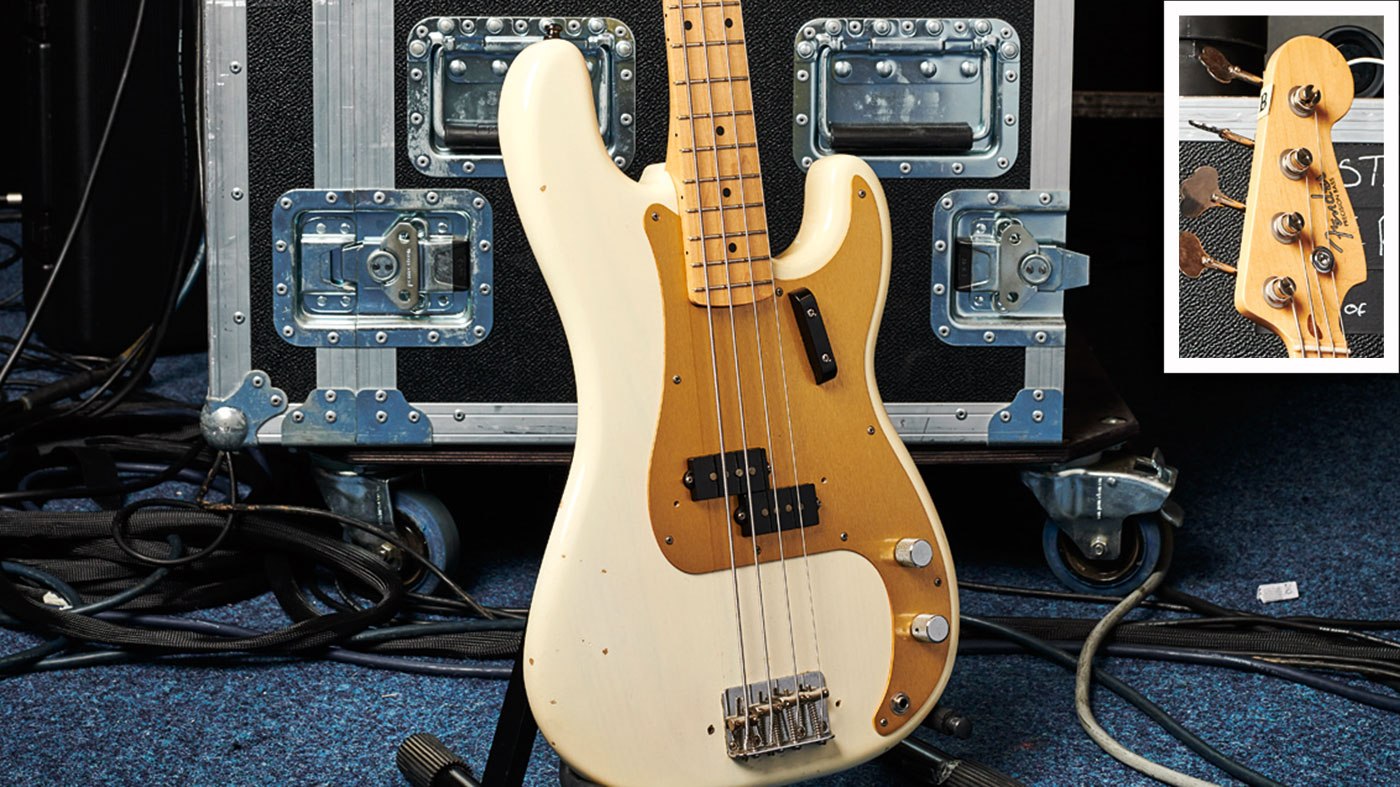
Fender Custom Precision Bass
Matt: “It’s a Fender Precision I had custom made. I played a Jazz for a while because I really liked the neck; it’s really easy to play. And with a Precision neck I just found it made my hands really sore. But this is back in the day in 2002, and I’ve probably got better technique so I should be using a Precision [neck] now! But I just got used to it. I like the Precision sound so I have a Precision body with Seymour Duncans in and a Jazz neck.”
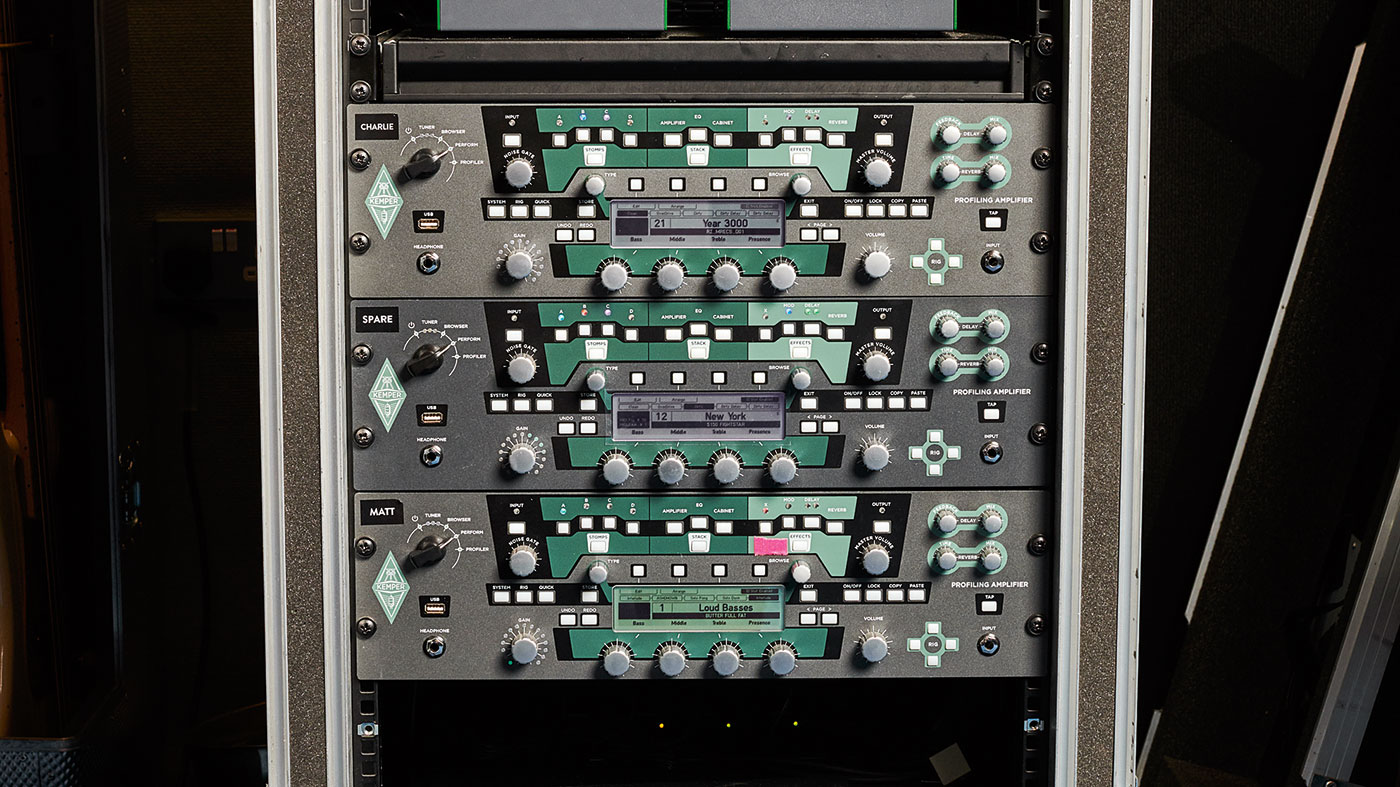
Kemper Profilers
Charlie: “We don’t use any live amps or cabs live. It’s Kemper, and that might be sacrilege to some of the readers but it’s just so much better for the sound guy and we’re all on in-ears. So we profiled the studio amps. For live it’s much more logistically practical for touring - it’s much less gear to carry around. And [metal producer] Colin Richardson, who has incredible ears, did a blind test. He modelled a Marshall and he couldn’t tell the difference… And I trust his ears implicitly.
“In the studio for this album the Marshall JCM 800, Mesa Dual Rectifier and the Audio Kitchen [The Big Trees] were like the triad. The Audio Kitchen was something Gil showed me that I’d never used before, which was a little gem that went across the record. They’re little tiny amps, all handmade, very artisan and bespoke. It’s this little terrier! It’s not that you’d ever use it as a single tone but what’s awesome about it is we’d slave the amp, so we’d have a Marshall and then we’d have a Mesa, they go quite well together and complement each other in tones. And then he’d just put, it might be a single or might be a double [track] of this Audio Kitchen - raspy, almost like a chainsaw amongst the other things. And you play that in amongst the others and it makes riffs sound huge.”

Rob is the Reviews Editor for GuitarWorld.com and MusicRadar guitars, so spends most of his waking hours (and beyond) thinking about and trying the latest gear while making sure our reviews team is giving you thorough and honest tests of it. He's worked for guitar mags and sites as a writer and editor for nearly 20 years but still winces at the thought of restringing anything with a Floyd Rose.

